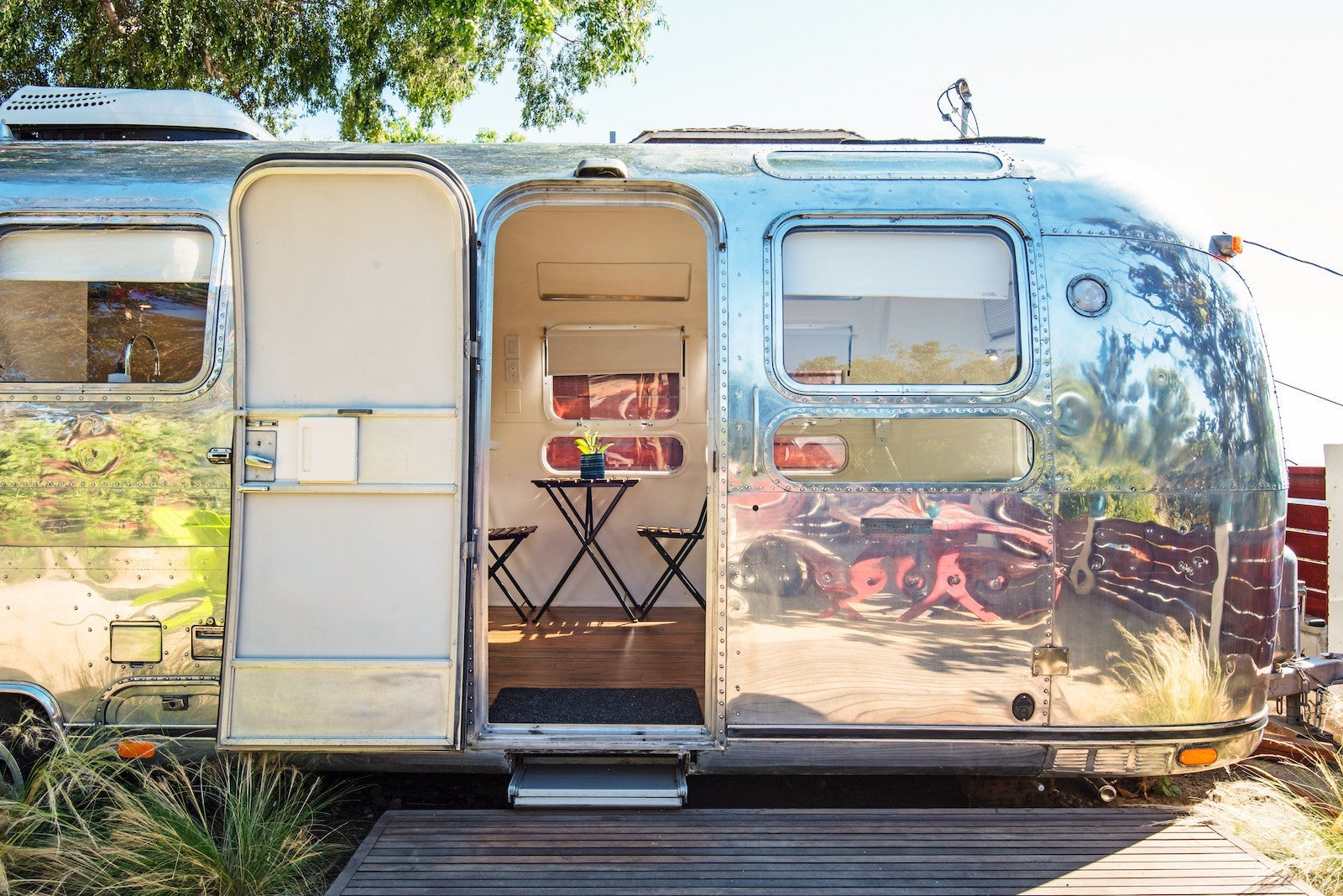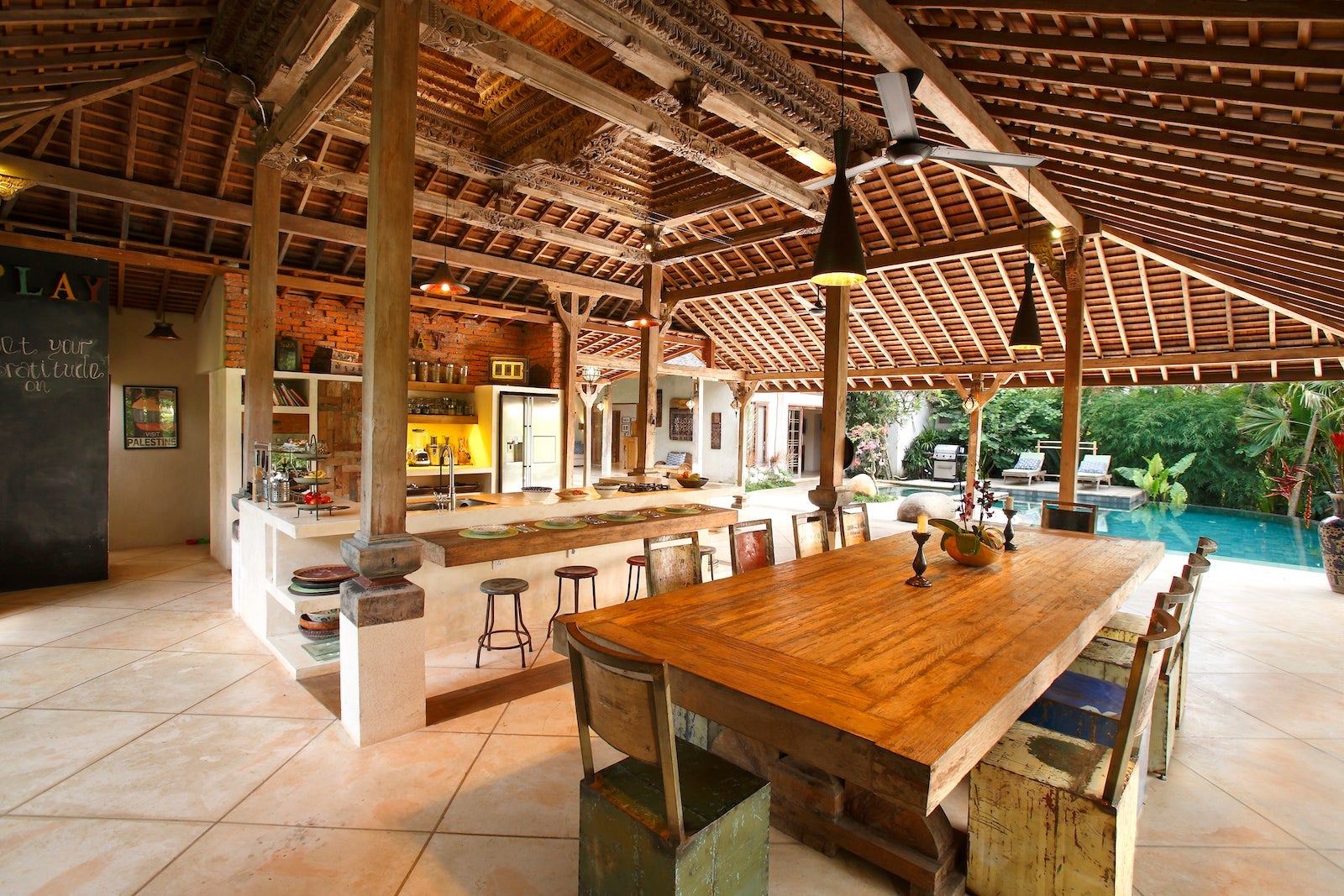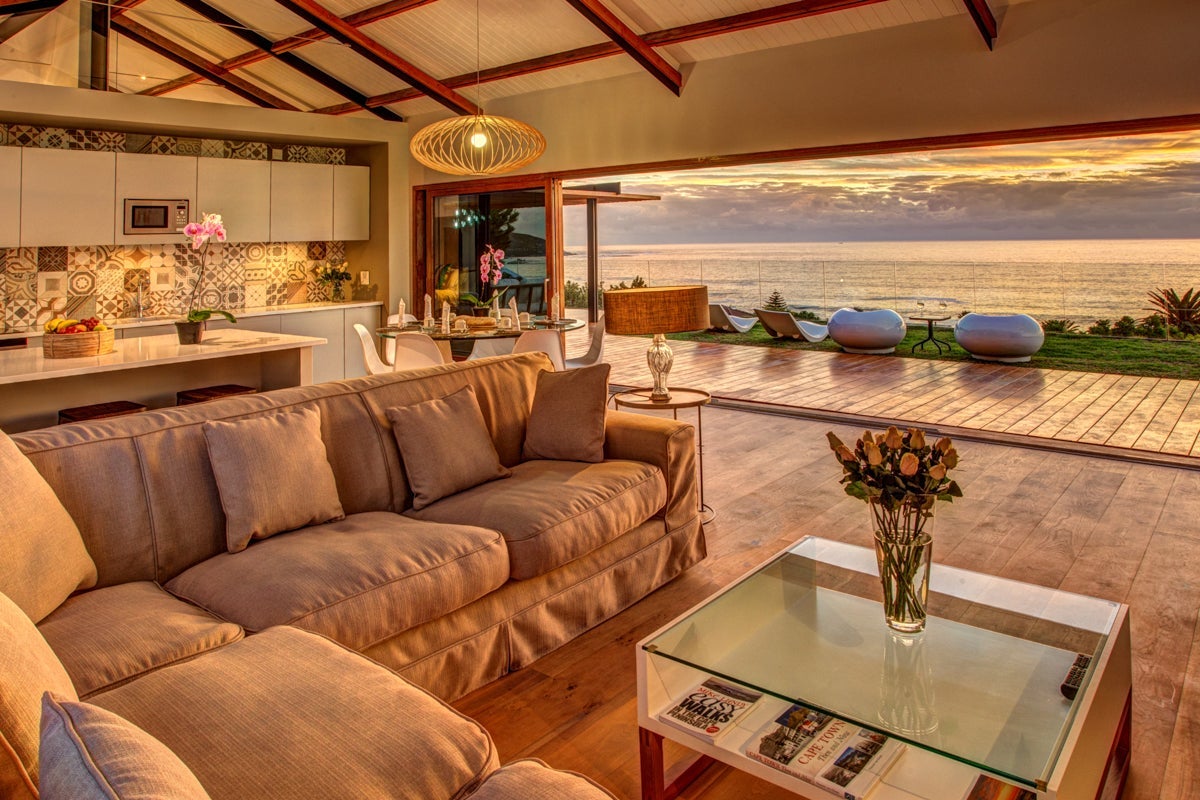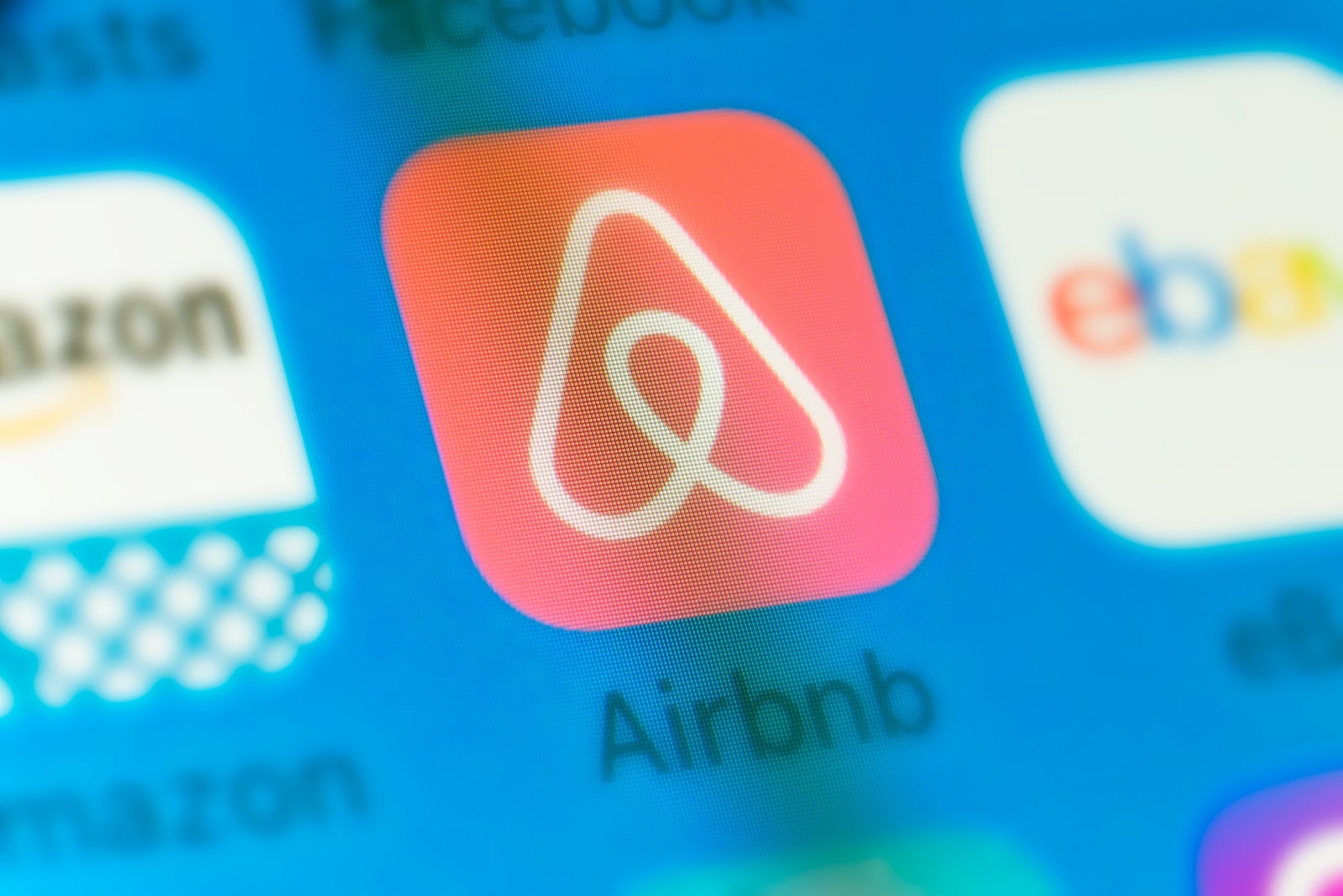Here's What Airbnb's New Fee Structure Really Means for Travelers
If you've ever booked an accommodation through Airbnb, you've likely noticed that, when it comes to your final bill, it could be slightly more than what you originally saw advertised as the nightly rate. That's because there's often a guest fee attached.
But, soon enough, those fees might be disappearing for certain stays booked via Airbnb.
Beginning next month, travelers may no longer pay any guest fees when they book selected hotels and professionally-managed rentals on Airbnb.
Previously, Airbnb would charge travelers a fee of up to 20% of the total cost of the stay, as well as charge hosts or property managers a commission fee ranging from 3 to 5% whenever someone booked one of their listings using Airbnb. Together, these guest and host commission fees made up a total Airbnb service fee that would represent some 23 to 25% of the total cost of a stay; these fees represent the sustaining revenue (read: lifeblood) of a company that's valued at some $35 billion and counting.
But now that Airbnb's product has evolved to include more professionally managed rentals and even hotels — the company purchased last-minute hotel booking platform HotelTonight in April — the company is making changes to its pricing structure that will make it look and feel a lot more like its main competitors, which include online travel agencies such as Booking.com and traditional hotel companies who are just now getting into homesharing, such as Marriott. Both Booking.com and Marriott don't charge guest fees for alternative accommodations or hotels; however, Expedia-owned VRBO, like Airbnb, still does.

Beginning June 4, Airbnb will require any new hotel that starts using its platform to advertise rooms to pay a default 14% commission to Airbnb, with the exception of hotels located in Japan and China.
Professional property managers, except for those based in Japan and China, who use Airbnb to advertise their listings, will also be able to choose if they want to stick with the old fee structure — the one where both guests and hosts pay a small amount to Airbnb — of if they want to adopt the new fee structure where they, as hosts, pay 14% to Airbnb, and guests don't have to pay any fees. Airbnb said that, depending on the region, one of those fee structures will be set as a default, but managers can choose which one they wish to use.
Travel industry news site Skift originally reported the elimination of the guest fee, but did not clarify that the elimination of the guest fee only applies to a small portion of Airbnb's inventory of more than 6 million listings and counting.
In other words, Airbnb isn't eliminating guest fees all together. In fact, all existing Airbnb hosts who started using Airbnb before June 4, regardless of whether they're professionals or just occasional Airbnb hosts, can keep using the old fee structure where both guests and hosts pay a small amount to Airbnb. But for hotels that are new to Airbnb as of June 4, and for select professionally managed rentals, travelers will soon notice they don't have to pay that guest fee anymore.

This new fee structure is an indication that Airbnb, like its competitors, is evolving, and offering guests more professionally managed product, whether in the form of traditional hotels or vacation rentals. And because it's adding more of those types of accommodations into the mix, the company also realizes it needs to change its commission model to make things more simple — not only for its customers, but for those professional lodging providers, too, who aren't just using Airbnb alone to get people to book stays in their properties.

"This is something professional hosts and hotels have been asking us for," an Airbnb spokesperson told The Points Guy. "It helps them drive more booking and helps them have more competitive rates across the different platforms they list on."
In a pilot of the new fee structure, Airbnb found that hosts who removed the guest fee saw an increase in bookings.
He added, "From the consumer side, there shouldn't be any changes, really. It's just that now, the property is taking on that Airbnb service fee."
What This Means for You
More Transparency
For travelers, while there's not much of a difference in terms of their Airbnb booking experience, there are obvious benefits in not having to pay a guest fee.
The majority of online travel agencies and hotel companies, including Booking.com and Marriott, do not charge guest fees, and Airbnb, along with Expedia-owned VRBO and HomeAway, have been outliers in this way.
"From a guest's perspective, it's much nicer to see the upfront price versus having to figure out what the cost is and how much it costs after fees are added on," said Alex Nigg, the founder and CEO of Properly, a short-term rentals operations platform that specializes in helping Airbnb hosts maintain their listings.
"I see it as a clear win, especially for travelers," said Rented.com CEO Andrew McConnell, whose company connects homeowners to property management companies. "The biggest thing most people want is clarity. Yes, fees are typically pushed to the consumer in some way, shape or form in the end, so the end price people pay will likely not change much. However, the ease of seeing a price, and knowing that is what it will cost you cannot be written off."
Possibly Higher Rates
However, people who use Airbnb to advertise their properties — especially the professional property managers or hotels who would be impacted by this new policy — might not like the fact that their commission fees to Airbnb are increasing from between 3 and 5% to 14%.
Traditionally, property managers and hotels favored using Airbnb as a distribution channel over others because Airbnb's commission rates were lower. Whereas a hotel might have to pay a 20 to 25% commission fee to Booking or Expedia whenever someone reserves one of their rooms on those channels, that same hotel — under Airbnb's original fee structure — would only pay a 3 to 5% commission when a guest booked a room on Airbnb.
Now, however, that commission rate is being increased by 9 to 11% more. To make up that extra commission cost, some of those impacted hosts might decide to raise their nightly rates.

Short-term rental experts, however, disagree as to whether this will be an easy transition for professional hosts to make. Properly's Nigg thinks this will amount to a simple "adjustment" and make it "easier for property managers and hotels to have uniform pricing across their platforms."
So, the rate you'll see for the exact same private accommodation or vacation rental that's advertised on Booking.com will likely be the same as the one you see on Airbnb. In other words, those rates will be more competitive.
"It might be a headache for property managers," said Simon Lehmann, co-founder and CEO of AJL Consulting, a consulting firm that advises companies in the private accommodations and vacation rental industries. "Airbnb has become a very convenient channel for them, and now they have to figure out how to roll over those fees to the property owners."
Lehmann, for one, also wonders if this new pricing structure will eventually force property owners who rent on Airbnb and other platforms to adopt Instant Booking and increase the quality of their listings, so guests don't have to wait to see if they are approved to stay in a particular listing.
Whether rates go up or down, or if more inventory on Airbnb becomes instantly bookable, remains to be seen.
It's Still a Place to Stay
While there are some travelers who might still prefer a hotel over a short-term rental, or vice versa, it's clear homesharing has become much more mainstream over the past few years. A clear indication of this is the fact that homesharing players such as Airbnb are adding hotels, while traditional hotel companies like Marriott are adding homes to their portfolios. Sites like Booking.com, Airbnb and now even Marriott both showcase traditional hotel rooms alongside private accommodations. In other words, the worlds of private accommodations and vacation rentals are converging, or colliding with traditional accommodations.

Nigg, who is also an Airbnb host and a frequent Airbnb guest, added, "[This pricing structure] makes sense from a convergence perspective. As guests are looking at both alternative and traditional accommodations at the same time, it makes sent to see the same price for the hotel and for a rental. It's an all-in price."
Lehmann predicts that, soon enough, as the lines blur between private and traditional lodging, Airbnb and other short-term rental platforms will adopt a more uniform pricing and fee structure that mimics what hotels use.
But Alternative Accommodations Aren't So, Well, Alternative
Airbnb may have gotten its start when its founders decided to lay out literal air mattresses in their San Francisco apartment for guests attending a San Francisco design conference back in 2008, but more than 10 years later, alternative accommodations have seriously evolved.
And while the vacation rental industry has been around for way longer than Airbnb has been in existence, distribution channels such as Airbnb, Booking and VRBO have made it that much easier for travelers to book these types of stays. In turn, travelers today expect more than ever from these types of stays, too.
"It is also a great potential indicator of greater standardization across the industry, which, as alternative accommodations become more and more mainstream, is certainly needed," said Rented.com's McConnell. "To date, it has been great to see a thousand flowers bloom as people could test different business models in what was largely still a nascent space. As the industry has grown in size and maturity, I think we can expect, and look forward to, more of this sort of business model alignment in other areas as well."
TPG featured card
at Capital One's secure site
Terms & restrictions apply. See rates & fees.
| 5X miles | Earn 5X miles on hotels, vacation rentals and rental cars booked through Capital One Travel |
| 2X miles | Earn unlimited 2X miles on every purchase, every day |
Pros
- Stellar welcome offer of 75,000 miles after spending $4,000 on purchases in the first three months from account opening. Plus, a $250 Capital One Travel credit to use in your first cardholder year upon account opening.
- You'll earn 2 miles per dollar on every purchase, which means you won't have to worry about memorizing bonus categories
- Rewards are versatile and can be redeemed for a statement credit or transferred to Capital One’s transfer partners
Cons
- Highest bonus-earning categories only on travel booked via Capital One Travel
- LIMITED-TIME OFFER: Enjoy $250 to use on Capital One Travel in your first cardholder year, plus earn 75,000 bonus miles once you spend $4,000 on purchases within the first 3 months from account opening - that’s equal to $1,000 in travel
- Earn unlimited 2X miles on every purchase, every day
- Earn 5X miles on hotels, vacation rentals and rental cars booked through Capital One Travel
- Miles won't expire for the life of the account and there's no limit to how many you can earn
- Receive up to a $120 credit for Global Entry or TSA PreCheck®
- Use your miles to get reimbursed for any travel purchase—or redeem by booking a trip through Capital One Travel
- Enjoy a $50 experience credit and other premium benefits with every hotel and vacation rental booked from the Lifestyle Collection
- Transfer your miles to your choice of 15+ travel loyalty programs
- Top rated mobile app

